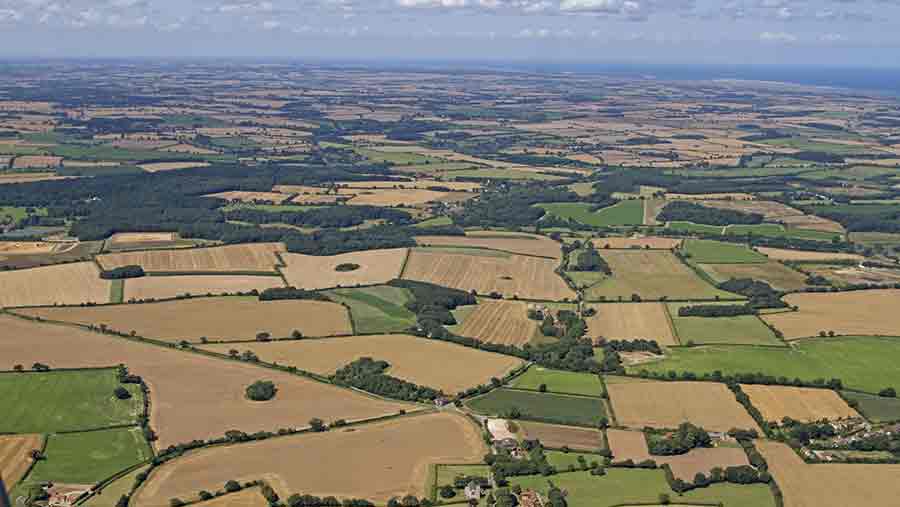Norfolk Council adds 440-acre arable farm to county estate
 © FLPA / Roger Tidman/REX/Shutterstock
© FLPA / Roger Tidman/REX/Shutterstock Norfolk County Council has bought 440 acres of Grade 2 arable land to add to its sizeable County Farms Estate.
The council said the acquisition in West Norfolk will provide a strong return on investment for its county farms, strengthening the estate’s ability to provide employment and generate income for the county.
The purchase price was negotiated by Norfolk CC’s commercial property team and its appointed agents, Cheffins Ely, and will be financed from existing funds.
See also: The benefits of becoming a council farm tenant
The farm, with soils especially suited to sugar beet and cereals but also offering flexibility for a wider range of cropping, along with two grain storage buildings, was advertised with a guide price of £3m.
Wide-ranging appeal
Bank House Farm is now the largest holding on the estate and will be offered as a full-time commercial farm from October 2018 as part of the estate’s emerging strategy for providing holdings of various sizes.
Cllr Keith Kiddie, chairman of Norfolk County Council’s business and property committee, said: “Securing Bank House Farm is a further step towards future-proofing the County Farms Estate and offers huge lettings potential because it has appeal to both established and up-and-coming farmers.”
The addition of Bank House Farm to the farms estate brings its total size to 16,738 acres, well above the council’s constitutional commitment to hold a minimum of 16,000 acres.
The council said the purchase allows for flexibility to develop or sell off other land within the portfolio if necessary.
Tenant Farmers Association chief executive George Dunn said the purchase was good news for farmers.
“We are working closely with Norfolk as it attempts to dig itself out of the hole it got itself into when the estate was managed externally,” he said. “Although progress has been made, a lot more needs to be done.”
The County Farms Estate in Norfolk is the third-largest county farms estate in England, behind Cambridgeshire and Lincolnshire.
It is split into 70 smaller estates ranging in size from 7 acres to 3,094 acres and provides farming opportunities for more than 145 tenants, with an average farm size of 120 acres.
Backlash
A backlash against Somerset County Council’s intention to speed up its disposal strategy through a review means that a new task group will also now consider the ongoing management of the estate.
Since 2010 when Somerset County Council took the decision to dispose of its county farms estate, it has disposed of around half, leaving it with about 3,707 acres.
But it has now announced plans for a rationalisation of its assets in order to streamline the disposal process and consider the future of its land with development potential.
The council has recommended a cross-party members’ group to be set up to review tenants’ interest, the rural economy, farming skills and alternative uses for these assets or their financial equivalent as part of a wider review into the council’s assets.
Mr Dunn said he was in touch with members of the group to clarify exactly what it will be doing but has yet to receive any detail.
“We are certainly encouraging it to look at issues surrounding best value, the management of the remaining estate and taking into consideration the thoughts of tenants on the estate,” he said.
